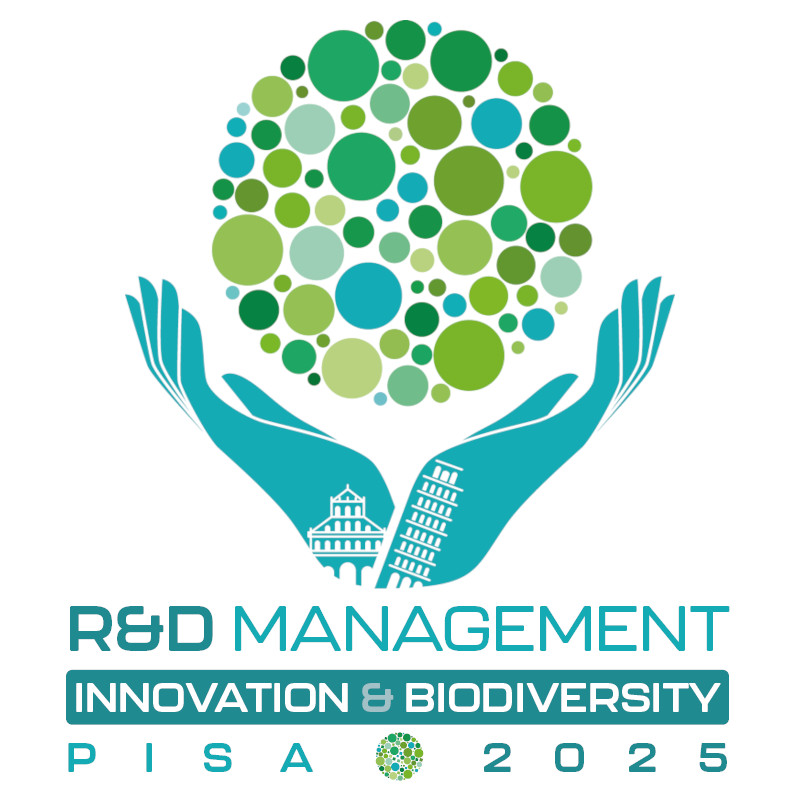The concept of just and twin transitions brings together the ‘Just Transition’ Mechanism, an EU initiative to support regions, industries, and communities heavily dependent on fossil fuels to make the transition to renewables; and the ‘twin transition’, which refers to how actions to increase sustainability are happening in parallel to the digital transformation.
These changes will have a massive socioeconomic impact and the pace is being driven by the urgent need to mitigate climate change, observes Alessia Zoppelletto from the University of Verona. She is chair of track 2.3 of the 2025 R&D Management Conference, which is looking at the interaction between just and twin transitions.

Just and twin transitions
Alessia Zoppelletto explains that there is an urgent need for systemic transformations in response to grand challenges such as climate change, inequality, and biodiversity loss.
“Solutions to address these challenges transcend individual organisations and require the emergence of collaborative architectures and what has been described as a ‘digital toolbox of solutions that can challenge the status quo’.
“However, academic research has only recently begun to examine these phenomena, and the less visible trade-offs, negative spillovers, and potential ‘dark sides’ of innovation are still being investigated. In this track we are investigating the challenges, opportunities and potential threats of twin and/or just transitions arising at different levels.”
Policy support for just transition
The increasing focus of governments, policymakers and institutions on sustainability and digitalization highlights the relevance of these complex transitions in achieving long-term socio-environmental resilience. Alessia highlights a number of recent policies:
- European Recovery Plan, with its €800 billion recovery instrument, aim to create a greener, more resilient Europe while supporting those in need.
- European Commission has pledged to mobilize at least €1 trillion in sustainable investments over the next ten years to address climate change and reach net-zero emissions by 2050.
- The Green Deal adopts tools such as the Just Transition Mechanism to ensure a fair transition towards a climate-neutral economy, leaving no one behind.
An interesting research area
Alessia explains that she and her co-chairs are already working in this area and each researcher’s path follows a specific ‘fil rouge’ or strand of research, crossing the themes of twin and just transitions from diverse perspectives.
- Alessia’s research focuses on the interplay between organisational strategies, digital transformation, and sustainability.
- Erica Santini recently won a project, PLOTTI (‘Place Leaders Of Twin Transition in the Italian local manufacturing systems’) focused on Twin Transition in industrial districts and clusters. The aim is to understand who leads the transition when the economic structure is characterised by specialised small and medium size companies.
- Ludovico Bullini Orlandi has developed several research projects investigating the role of digital transformation in enhancing sustainability at both organisational and country levels. This includes the project IMAGE (Upskilling paths for HR professionals to IMprove AGE management). The project aims to enhance managerial practices to better address the challenges of managing a multigenerational workforce, mitigating perceptions of generational inequity, and responding to diverse well-being needs across age groups.
- Claudia Vecciolini has extensive research experience in digital transformation, with a particular focus on digital technology adoption in the manufacturing sector. She was recently awarded ESRC funding as PI to study how digital technology providers and their client manufacturing SMEs collaborate to exchange knowledge, skills and technology. In addition, she has started exploring the concept of distributive justice by examining the impact of public funding allocations on regional green innovation.
Relevant or useful references:
On the topic of twin and just transitions:
- European Commission (2024). [Online.] Available: https://commission.europa.eu/strategy-and-policy/priorities-2019-2024/european-green-deal/finance-and-green-deal/just-transition-mechanism_en.
- George, G., Merrill, R. K., & Schillebeeckx, S. J. D. (2021). Digital Sustainability and Entrepreneurship: How Digital Innovations Are Helping Tackle Climate Change and Sustainable Development. Entrepreneurship Theory and Practice, Vol. 45 No. 5, pp. 999-1027. https://doi.org/10.1177/1042258719899425.
- Grubert, E., (2020). Fossil electricity retirement deadlines for a just transition. Science, Vol. 370 No. 6521, pp.1171-1173. 1126/science.abe0375.
- Karaosman, H., Marshall, D., Ward, I. (2024). For the many not the few: introducing just transition for supply chain management. International Journal of Operations & Production Management, Vol. ahead-of-print No. ahead-of-print. https://doi.org/10.1108/IJOPM-07-2023-0587.
- Montresor, S., Vezzani, A. (2023). Digital technologies and eco-innovation. Evidence of the twin transition from Italian firms. Industry and Innovation, Vol. 30, No. 7, pp. 766–800. https://doi.org/10.1080/13662716.2023.2213179.
Track chairs’ related works:
- Bellandi, M., De Propris, L., Santini, E. (2019). Industry 4.0 + challenges to local productive systems and place-based integrated industrial policies. In P. Bianchi, C. R. Durán, & S. Labory (Eds.), Transforming industrial policy for the digital age: Production, territories and structural change (pp. 201–218). Cheltenham: Edward Elgar Publishing.
- Kiani, A., Bullini Orlandi, L., & Chen, Q. (2024). Greening the path to disruptive innovation: The roles of CEOs characteristics, green organizational identity, and green product competitiveness. Business Strategy and the Environment, 33(7), 6139-6155.
- Zoppelletto, A., Santini, E., Rossignoli, C., Ricciardi, F., (2025). “Interfirm collaboration enhancing twin transition: evidences from the Italian fashion industry”. IEEE Transactions on Engineering Management – In Press.
- Zoppelletto A. (2024). “Organizing for Sustainability. Resilient Organizational Architectures to Co-create Sustainable Transitions”. (Open Acess). https://series.francoangeli.it/index.php/oa/catalog/book/1244
- Zoppelletto, A., & Bullini Orlandi, L. (2022). Cultural and digital collaboration infrastructures as sustainability enhancing factors: A configurational approach. Technological Forecasting and Social Change, 179, 121645.
2.3 Advancing just and twin transitions: Insights from a multi-level perspective
Sustainability-related challenges, such as climate change, inequality, and biodiversity loss, require urgent and coordinated global responses.
One systematic approach is the European Recovery Plan, which prioritises a greener and more inclusive economic system, to address socio-environmental issues. This is being enabled by the digital transition, which is providing the tools need by organisations to redesigning their strategies, business models, and organisational architectures to align with this vision.
This track investigates just and twin transitions and embraces both empirical and theoretical work-in-progress, as well as full research papers, using qualitative, quantitative, or mixed methods to investigate the multilevel challenge of organising for just and twin transitions.

R&D Management Conference 2025:
Innovation & Biodiversity
Institute of Management of Scuola Superiore Sant’Anna, Pisa
30 June – 2 July 2025
Track 2.3 Advancing Just and Twin Transitions: Insights from a Multi-Level Perspective
Track chair: Alessia Zoppelletto, University of Verona
Co-chairs:
Erica Santini, University of Trento
Ludovico Bullini Orlandi, University of Bologna
Claudia Vecciolini, King’s College London

